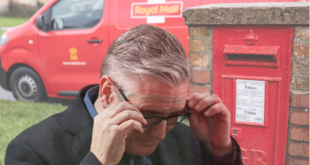Boss Lyndon Davies says: “We were bringing in Batman vs Joker’s Scalextric sets to arrive in the UK in late November for sale in January. It went up and down the streets of Dover and then it went to Rotterdam, finally arriving last week.”
According to Fraser Robinson, a former Uber executive who now runs freight-forwarding firm Beacon, the shipping problems can be traced back to earlier this year.
“When Covid hit back in March, there was so much uncertainty about the impact on global demand,” he says. Sensing a drying up of global trade, shipping operators parked their ships in ports to save on fuel costs, he adds.
“That had the natural effect of reducing capacity. But what happened over the summer is that demand, particularly in the US from consumers, rebounded much quicker than everyone expected. When demand exceeds supply by a lot, prices go up.”
In addition, the lack of ships was also compounded by a dearth of containers.
Governments around the world embarked on a foot race to secure vital PPE earlier this year. But administrations ran up against a similar problem: there was nowhere to store their face masks and surgical gowns.
Goods were left in containers at ports, clogging them up and leading to a shortage of the 40ft metal boxes that play a crucial role in global supply chains.


